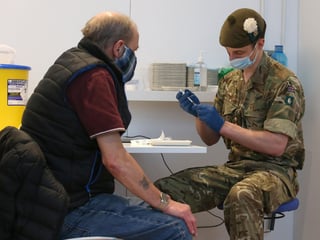Post-Scottish independence currency plan a 'huge risk', say economists
The report compiled by the pro-union ‘These Islands’ think-tank spoke with a number of global financial experts, who also raise concerns over how Scotland would manage the deficit it would face after leaving the UK.
First Minister Nicola Sturgeon has said the country would be able to generate growth after independence that would offset the challenges faced in balancing the books.


Advertisement
Hide AdAdvertisement
Hide AdThe immediate currency plan post-independence would be to continue to use sterling as a transitional step towards creating a stand-alone Scottish currency, as set out in the party's Growth Commission report from 2018.
But Dame DeAnne Julius, a founding member of the Bank of England's monetary policy committee and a former chief economist at British Airways and Shell, has raised concerns over the proposals.
"I think it would be a hugely risky experiment for Scotland," she told These Islands.
"The evidence one could look to for this kind of arrangement are places that are quite different and at a different development level – places like Argentina – and it's impossible, I think, to find any place that is a success story undertaking this route of political independence using a currency issued by another country."
The Scottish Government wants to hold another referendum on leaving the UK, with polls showing independence is backed by a majority of Scots.
Ms Sturgeon says a pro-independence majority at the coming Holyrood elections in May will be a mandate for a repeat of the 2014 vote.
Under the SNP's post-independence plans, a Scottish Central Bank (SCB) would be established to provide liquidity support to Scottish retail banks and be lender of last resort.
But Scotland had a deficit of £15,1 billion in 2019/20, about 8.6 per cent of GDP, and this is likely to have increased as a result of the Covid-19 pandemic.
Advertisement
Hide AdAdvertisement
Hide AdProfessor Cédric Tille, member of the Bank Council of the Swiss National Bank and head of the Bilateral Assistance and Capacity Building for Central Banks Programme at the Graduate Institute Geneva, warned this would be a "big problem" for Scotland after independence.
"Looking at the massive Scottish fiscal and current account deficits, my advice to the new prime minister, should the country split off, would be to address these structural challenges or develop good links with the IMF, because she or he might well need their assistance in the future," he told the report.
St Andrews University's Prof Alan Sutherland warned sterlingisation would have serious impacts on the Scottish banking system.
"Some borrowers will just not get mortgages anymore, some businesses will not get loans, rates of interest will be much higher," he said.
SNP Deputy Leader Keith Brown said: "“Scotland will continue to use the pound at the point of independence, establishing an independent Scottish currency as soon as practicable through a careful, managed and responsible transition when an independent Scottish parliament chooses to do so.
“Scotland is a prosperous and successful nation but we can do so much more by matching the success of other similar-sized advanced independent countries which enjoy control of their own economic policy.”
A message from the Editor:Thank you for reading this article. We're more reliant on your support than ever as the shift in consumer habits brought about by Coronavirus impacts our advertisers.
If you haven't already, please consider supporting our trusted, fact-checked journalism by taking out a digital subscription.
Comments
Want to join the conversation? Please or to comment on this article.
